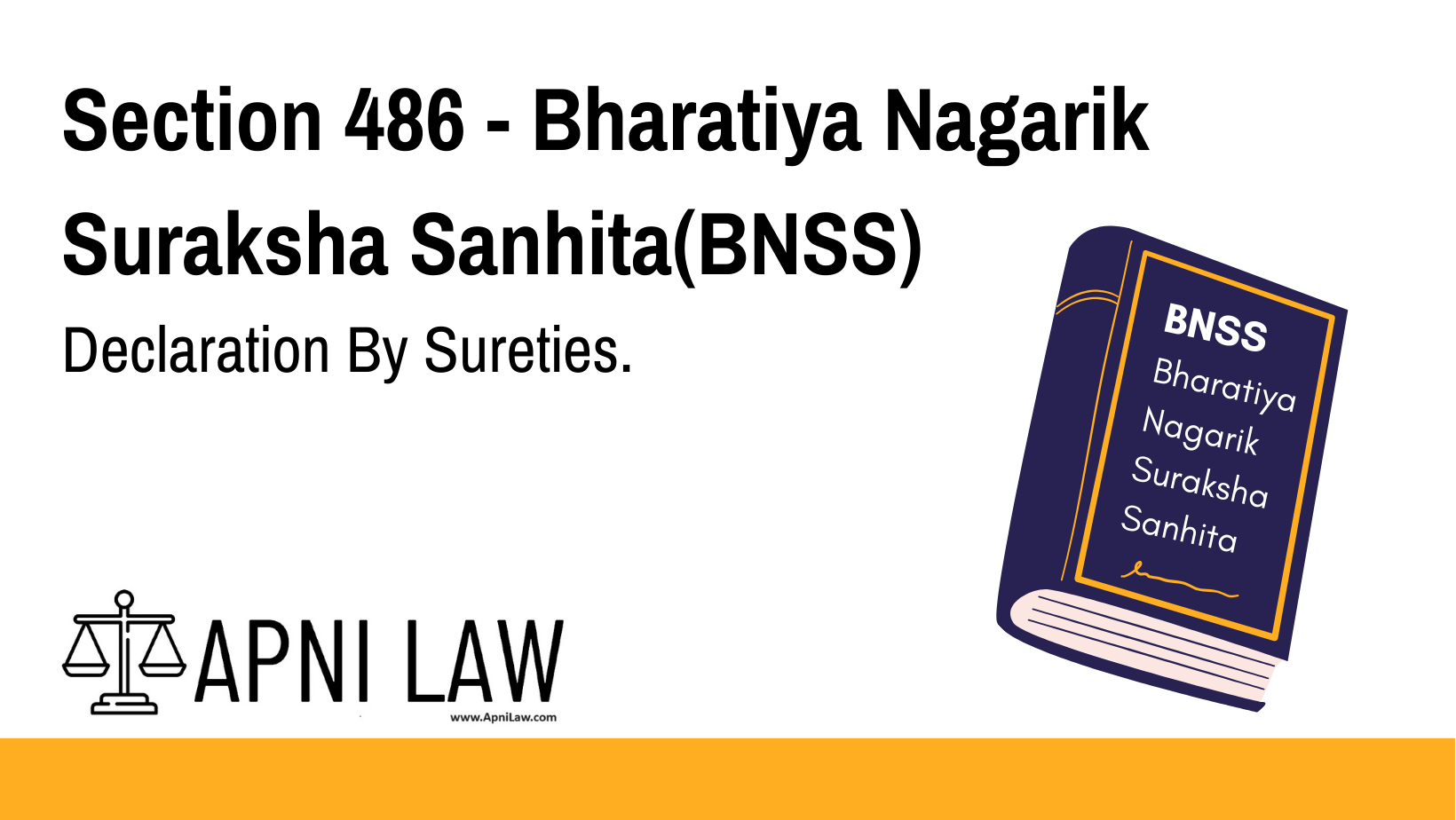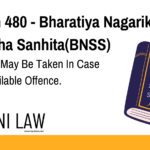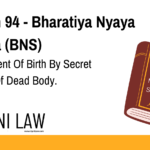Code: Section 486 BNSS
Every person standing surety to an accused person for his release on bail, shall
make a declaration before the Court as to the number of persons to whom he has stood
surety including the accused, giving therein all the relevant particulars.
Explanation of Section 486 BNSS
Section 486 of the BNSS requires a person who stands as a surety for an accused person to make a declaration before the Court. This declaration must include:
- The number of individuals to whom the surety has agreed to stand, including the accused.
- Relevant details regarding the surety relationship for each individual involved.
The purpose of this provision is to ensure transparency and accountability in the surety process. By requiring sureties to declare the extent of their commitments, the Court can better assess the surety’s capacity to guarantee the accused’s appearance in Court. It also helps prevent individuals from overstretching their responsibilities by standing surety for multiple people, ensuring that there is no undue risk taken.
Illustration
Example 1: Surety Declaration for Multiple Individuals
A person stands surety for the accused and also for a few other individuals in different cases. Before the Court, the surety declares that they are standing surety for four persons, including the accused, and provides all the necessary details about each person.
Example 2: Ensuring Transparency
A surety makes a declaration before the Court stating they are responsible for the accused and two other individuals. This ensures that the Court is aware of the surety’s commitments, and can assess if the surety is capable of fulfilling the responsibility.
Common Questions and Answers on Section 486 BNSS
1. What does a surety declaration include?
- Answer: The declaration includes the number of individuals the surety has committed to, including the accused, and provides relevant details about each person.
2. Why is the declaration by sureties necessary?
- Answer: It is necessary to ensure transparency and prevent sureties from overstretching their financial or personal responsibilities. It allows the Court to make informed decisions about the surety’s ability to guarantee the accused’s presence in Court.
3. What happens if a surety fails to declare all relevant information?
- Answer: Failure to provide accurate information could affect the validity of the surety and the bail bond. The Court may reconsider the bail arrangements or take appropriate actions to ensure proper compliance.
Conclusion
Section 486 of the BNSS emphasizes the importance of transparency in the surety process for bail. By requiring sureties to declare the number of persons they have committed to, the law ensures that both the Court and the surety are fully aware of the responsibilities involved, thus safeguarding the integrity of the judicial process.











